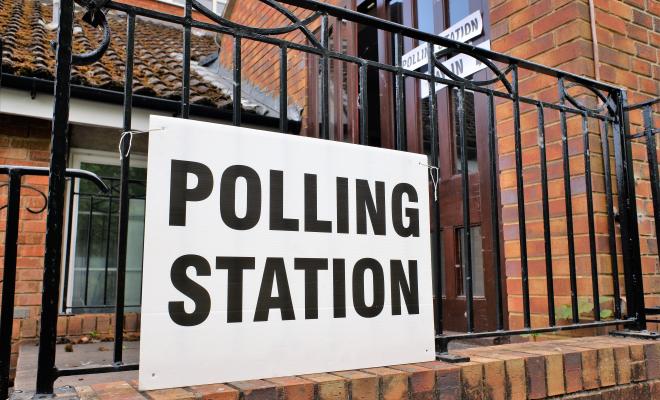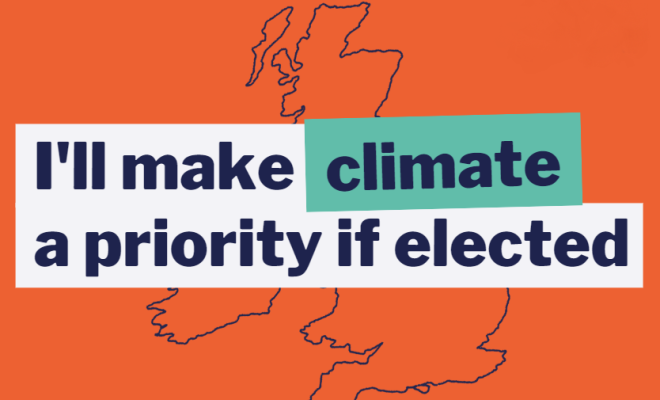12 Mar 2024
Throughout our elections campaign, it’s key we can demonstrate to prospective candidates that issues such as heat-leaking homes, fuel poverty, access to public transport and an inclusive transition to a green economy are important issues for the communities they hope to represent.
In addition, we also want to bring together individuals and organisations working across the geographical spread of each region where mayoral elections will be taking place. To this end, we need to identify not only groups working in individual communities within the mayoral region but also groups working across the entire region.
Find local partners
Meet with your group to help come up with potential partners. We suggest you follow this rough session plan, which will take around an hour.
Use the table below to start mapping out which organisations are working on the issues in our 10-point Climate Action Plan for your mayoral region (please note these vary between regions so the list below isn’t exhaustive). Think specifically about groups that are supporting marginalised communities, and where their work might touch on the issues in our action plan. These organisations might not be campaigning organisations.
You can also make use of our community mapping activities to help identify the partners you might want to connect with. These activities include:
- Community mapping
- Movement mapping
- Influence mapping.
Build relationships
Once you’ve identified prospective partners, work with your group members to reach out to them. You can use this template email:
Dear [contact name],
As a member of [your group], I’m actively campaigning ahead of the 2024 mayoral elections for [your region] to ensure our candidates know that climate and nature are important to residents across the region.
We know that [prospective partner] cares about these issues because [insert your knowledge of the prospective partner’s work].
Would you be willing to join our coalition meetings and get involved in the planning of our upcoming hustings event?
I really hope that you or someone else from [prospective partner] is able to join us. If you’d like to meet up or speak about this, then please let me know a time that would be good for you.
I look forward to exploring how [your group] and [prospective partner] could work together.
Best wishes,
[your name]
[your group]
If they’re interested and would like to meet, here are some pointers for a first conversation.
Introduce yourself. Introduce the purpose of your conversation and why you’ve reached out to them. Set out how much time you expect the conversation to take.
Build a connection: listen. Take time to learn about their organisation. How do they operate, what are their communication channels, where and how are decisions made, what are they working on and how do they do that work? This will help you link your work to theirs more effectively and understand ways in which you can ask them to be involved and support the campaign.
Build a connection: explore common ground. Where does the work they do tie in with your mayoral campaign and pledge asks? Make sure the connection between their work and what you’re doing is clear.
Make an ask. Be clear and open about what your asks are. You might have different asks depending on how the conversation goes.
- Do they want to get involved in the campaign?
- Do they want to join your communication channels and/ or attend your meetings?
- Can they offer any advice that could shape your campaign plan?
- Can they share your news and events through their channels?
Find out more about how to have persuasive conversations with people in your community. In addition to the approaches to relationship building outlined on our more general “Building local alliances” webpage, here are some further tips:
- Be respectful of their preferred way of communicating, but keep in mind that a conversation is often most effective. Don’t be afraid to pick up the phone or to go and support an in-person event they’re running and have a conversation there.
- Given the timeframe of this campaign, it might be important to make your ask quicker than you would otherwise. Try to reach out to any prospective partners as soon as possible, with the hope you’ll have built a connection and be able to meet with them within the next couple of months.
- Make sure it’s clear what space there is for them to feed in, participate or take a leading role. There should be space in your campaign strategy for the groups you partner with to shape what happens going forwards, and rather than joining something already set in stone.
Run a partnership meeting
At some point in your campaign journey, you may want to bring together a range of partners for a partnership meeting. The aim of this meeting will be to build relationships and your mayoral campaign collectively.
At this meeting:
- Briefly set out the campaign goal, timeline, any progress to date and next steps. Partners should already be aware of this so no need to go into too much depth.
- Allow space for each partner to share: what they’re working on and which aspects of the campaign they’re particularly interested in; what skills, experience and connections they bring; and what they hope to get out of the campaign.
- Look for common ground. There might be a particular theme that emerges such as clean air or active travel, or the conversation might stay more general.
- Ask if there’s anything that would prevent partners from joining or being part of the campaign (eg any organisational red lines or issues they wouldn't want to work on).
- Ask what capacity different partners have and what resources they can offer. This might be time, resources, communication channels etc. Try to match tasks and roles to each partner’s capacity.
- Make sure actions are noted down and agreed to before the meeting is over.
- Make sure partners are connected with your communication channels so that they’re involved on an ongoing basis.
- Follow up to make sure that action points are acted on.
- Try to allow some informal space for partners to get to know each other better and build connections.




